Dutch engineer whose electric tuk tuks are world-beaters gets green light to sell them in Th
ailand
By Maxmilian Wechsler
By Maxmilian Wechsler
| Since 2010, Dennis Harte’s locally made vehicles have become an international phenomenon. Now Thais can finally enjoy their eco-friendly qualities THE future is bright green for Dennis Harte, General Manager of the Tuk Tuk Factory (TTF), a company that manufactures fully electric eco-friendly tuk tuks in Samut Prakan province. Along with innovators like Elon Musk, Dennis believes that silent and emissions-free electric vehicles are the wave of the future. He feels there is a real need to take fossil-fuel guzzling vehicles off the roads, and he is doing something about it. After unveiling a successful prototype in 2009, the 35-year-old Dutch engineer began offering electric tuk tuks for sale in mid-2010. Production has doubled at TTF every year since 2013, and Dennis plans to make 1,000 vehicles next year. The company will complete construction of a new manufacturing plant in early 2017, and also begin sales in Thailand, thanks to a change in Thai regulations. Until recently, TTF could only export the vehicles it makes here. “I had long been fascinated with tuk tuks, and so I chose to work on them for my graduation project along with my colleague, Marijn van der Linden” said Dennis, who earned his Master’s degree in Industrial Engineering from the University of Delft in the Netherlands in 2008. “In 2007, people were talking mostly about hydrogen and other types of engines, but I knew that electric was the future for tuk tuks. While still at university, I started to work with Tuk Tuk Company, a Dutch firm that introduced tuk tuks to Holland. “They were importing the vehicles from Thailand and faced problems with the maintenance. The petrol engine was dirty and didn’t comply with European standards. They had to test every tuk tuk, one by one, in order to obtain a permit for its use. They asked Marijn and me to help make improvements. We did some studies and decided to design an electric tuk tuk with some new concepts. I designed the interior and Marijn the exterior. “We formed TTF in 2009, with our director Roland Vos, a former Unilever executive. First we took old petrol tuk tuks and put in electric drivetrains. Later we stopped converting old tuk tuks and started to make completely new vehicles instead. |
| “In 2010 we made just 10 vehicles; the following year and in 2012 it was 30. Then in 2013 we made 60 tuk tuks and in 2014 doubled the production to 127. In 2015 we made 176 vehicles and this year we are set to produce 360-400 vehicles. Next year the plan is to make around 1,000 tuk tuks. Business is good and the demand is increasing. We have the same number of employees as we did in 2013 but we are able to make more vehicles because we are well organised. “We export to all over Europe and also Australia and New Zealand. We have a partner in the United States that sells our vehicles under its logo e-Tuk USA and TTF sells in Europe and the rest of the world. We now have a couple hundred electric tuk tuks driving around Europe in France, Portugal, Spain, the Netherlands, Germany, and Switzerland. Our tuk tuks are used mainly for special events like weddings, but also things like city tours. If you go to Porto or Lisbon in Portugal in Spain or Berlin, Germany, you can see our tuk tuks driving tourists around. “We are currently making six models, three small and three larger ones. We have passenger, cargo, and pickup versions. The most popular model now comfortably accommodates six passengers, not counting the driver. We will soon be making tuk tuks with four forward facing seats, and we’re designing new steps to make it easier to enter the vehicle. We are also looking into bio-plastics as materials,” said Dennis. He acknowledged that his tuk tuks are more expensive than conventional ones that use petrol or gas, but pointed out that in the long run the owners save a lot in fuel costs, and less maintenance is needed as well. “We import some parts like the electric motors, but as much as 80 percent of the parts used are made by local suppliers. We have good suppliers and we have a good quality control setup. I check some tuk tuks myself, but we have well trained staff do the final control. Every vehicle is test driven on the road before it is sent to the customer.” |
| Dennis said the company is doing research on how and where to advertise. “Before we had a zero budget for advertising, but now it’s starting to look like a good idea. I think that we need to start doing some advertising, at least in Thailand. People know us through YouTube here. “As for service, we have mechanics in Europe and sometimes we fly them directly to the customer. We don’t have too many complaints and we appreciate if customers let us know if anything is wrong with our vehicles so we can make improvements.” Electric tuk tuks finally make it to Thailand ennis enjoys his work and he’s happy to be producing an environmentally friendly means of transport. “Electric tuk tuks are fun and clean. You can feel good about driving them anywhere, even holiday resorts and national parks, because there are no emissions.” He is also happy that TTF is now free to sell in Thailand, thanks in large part to TTF’s new partner, Loxley Company. Loxley helped to initiate a change in the old regulations, which made it difficult for Thai customers to register the vehicles. Loxley is also handling sales inside Thailand. “It was kind of frustrating that we could sell around the world but not in our backyard. I want my staff to see our tuk tuks on the streets here,” said Dennis. “TTF recently sold its first tuk tuks inside Thailand. The first two were bought by Anantara Bangkok Riverside Resort, and others were bought by individuals. Through Loxley we are now able to sell our tuk tuks to all hotels and condos in Thailand. They have a good network here. “At the moment we are the only manufacturer of electric tuk tuks in Thailand. The most expensive part is the battery,” said Dennis. “We actually use golf cart batteries, but our vehicles are twice as powerful as golf carts. We can fit seven people inside and still go up very steep hills or car parks. We supply tuk tuks to Switzerland, where obviously the inclines are quite intense.” |
| Dennis then gave some more detailed information, “The 72V battery pack provides 14kW of power. The total weight of the battery is around 400kg, which is almost half of the total vehicle weight of 850kg. “The battery costs around 10,000 baht for 12 blocks and must be replaced every three years. A lithium battery costs more. You can drive a minimum of 85 km on one charge in a fully loaded tuk tuk at a speed of 50km/h. The efficiency depends a great deal on the driver. A hasty driver who brakes a lot will have to charge more often. It costs about 30 baht to fully charge a tuk tuk in Thailand. “Since 2009 we have been operating out of two factories in the Bang Phli area of Samut Prakan. Soon we will move close to the Motorway and into a brand new building. We need more space. The factory will have solar panels on the roof and better facilities for workers. We will have storage space for vehicles and also a showroom. “Now we have about 18 workers. We don’t rotate the staff too much, but with the opening of the new factory we will hire more people and we plan to have two shifts.” |
| Milestones Dennis proudly described an epic journey recently made by one of his tuk tuks, “Three students called ‘The Pilgreens’ bought one of our tuk tuks and travelled overland to Paris. They started here in June 2015 and ended up in Paris in October 2015, by way of China and Russia. They also travelled in Europe within different cities. “They installed a big battery that allowed them to travel up to 500 km/day and they had a special solar panel on top to charge the battery. They also broke a record by travelling across mountains, 4,500 meters high. We were glad to help them and it was good promotion for us. “I also met Thai Prime Minister General Prayut in March 2015, at an event organised by the Electric Vehicle Association of Thailand. I met and spoke with the PM for a second time in August of this year on the invitation of the Ministry of Energy. Gen Prayut was actually driving one of our tuk tuks. “He remembered me from the first time and asked if we had any problems. I told him that we were exporting to all over Europe but still couldn’t sell in Thailand because of regulatory hurdles. He said the government was trying to change that and he drove a tuk tuk a little ways to show his support.” A photo of Gen Prayuth and Dennis appeared on the front page of the biggest Thai daily newspaper, Thai Rath, on August 11. It is probably no coincidence that the regulatory change came soon afterwards. The new regulations finally allow electric tuk tuks to be registered and licensed with either normal or lithium batteries, which give a longer range. “The new regulations for tuk tuks are out already but they are very strict. The TTF can actually sell vehicles to hotels and private businesses but we can’t make money as taxi tuk tuk. New regulations for the common street tuk tuk driver are expected in the future,” Dennis said. |
Final say
“Clearly, there is an expanding global market for clean, quality tuk tuks,” said Dennis. “They’re gaining popularity in Africa, South America, Europe, and Asia. Lately tuk tuks have even found their way to the US.
“I am excited that after selling many tuk tuks abroad we can now also sell in Thailand. This is ground zero for us. I expect that after the new regulations are in force other companies will start making electric tuk tuks here, and some have already announced that intention. But I also expect that we will stay out in front of the rest. We are developing new vehicles and making lots of improvements. “As for the future, I am sure that we will be making many different small-range electric vehicles. Our vehicles are now geared for the high-end market like hotels and resorts, but we want to also make cheaper tuk tuks that can replace the noisy, polluting ones currently on Bangkok streets.”
facebook.com/tuktukfactory
“Clearly, there is an expanding global market for clean, quality tuk tuks,” said Dennis. “They’re gaining popularity in Africa, South America, Europe, and Asia. Lately tuk tuks have even found their way to the US.
“I am excited that after selling many tuk tuks abroad we can now also sell in Thailand. This is ground zero for us. I expect that after the new regulations are in force other companies will start making electric tuk tuks here, and some have already announced that intention. But I also expect that we will stay out in front of the rest. We are developing new vehicles and making lots of improvements. “As for the future, I am sure that we will be making many different small-range electric vehicles. Our vehicles are now geared for the high-end market like hotels and resorts, but we want to also make cheaper tuk tuks that can replace the noisy, polluting ones currently on Bangkok streets.”
facebook.com/tuktukfactory

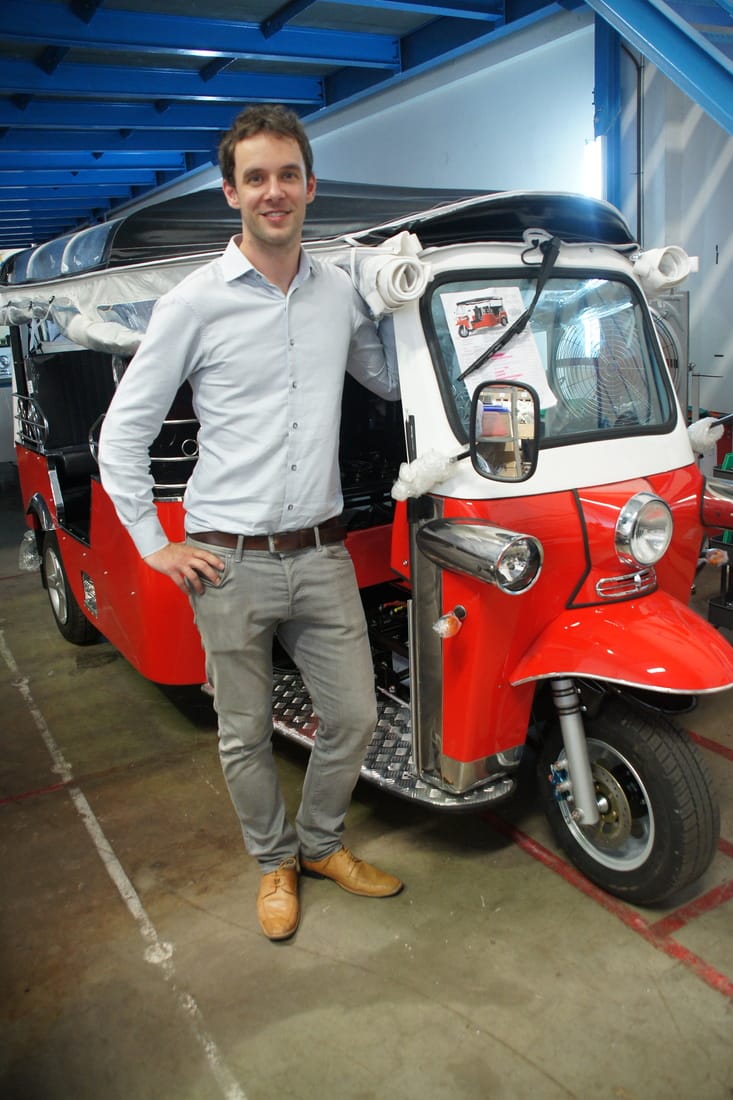
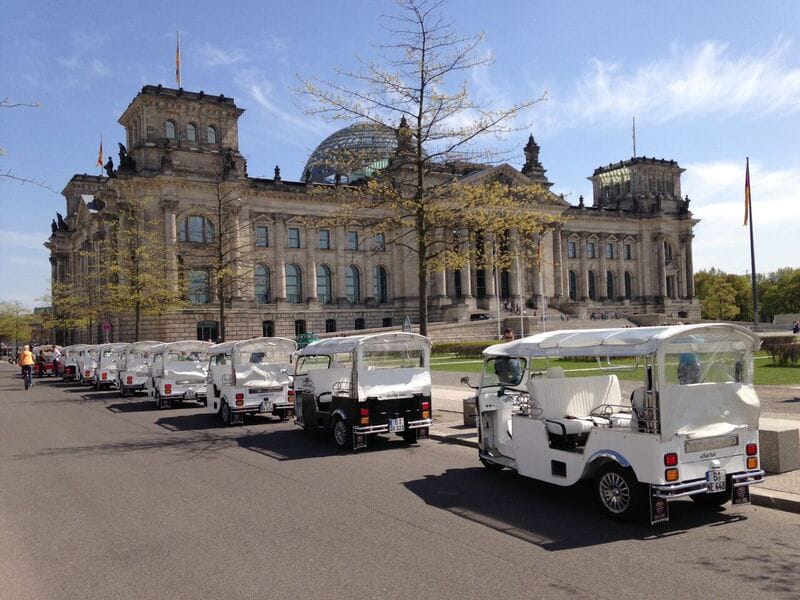
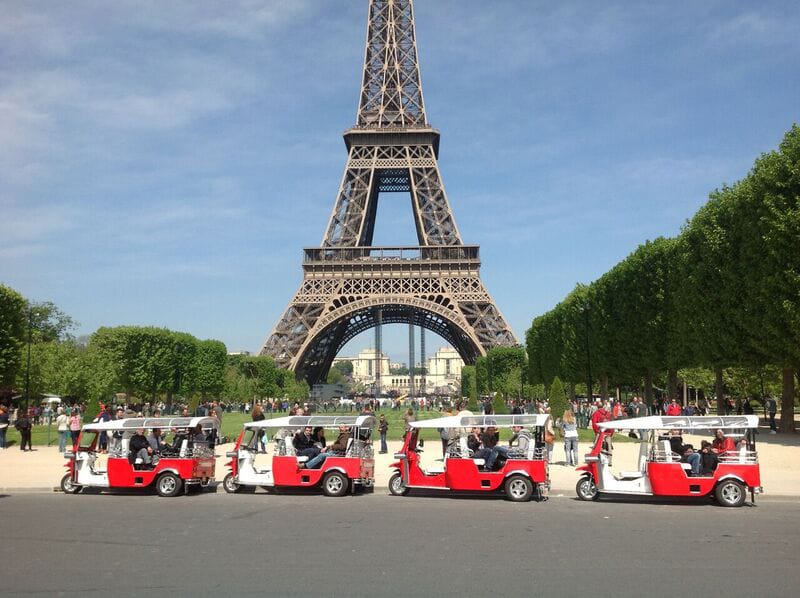
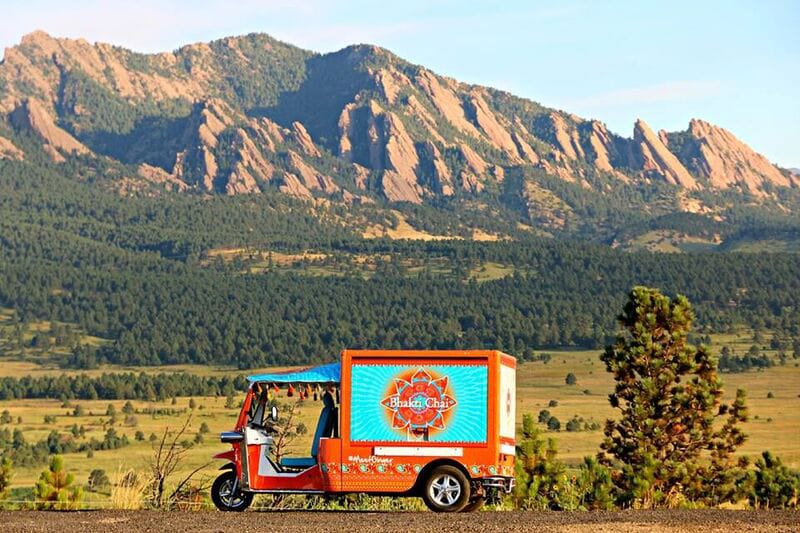
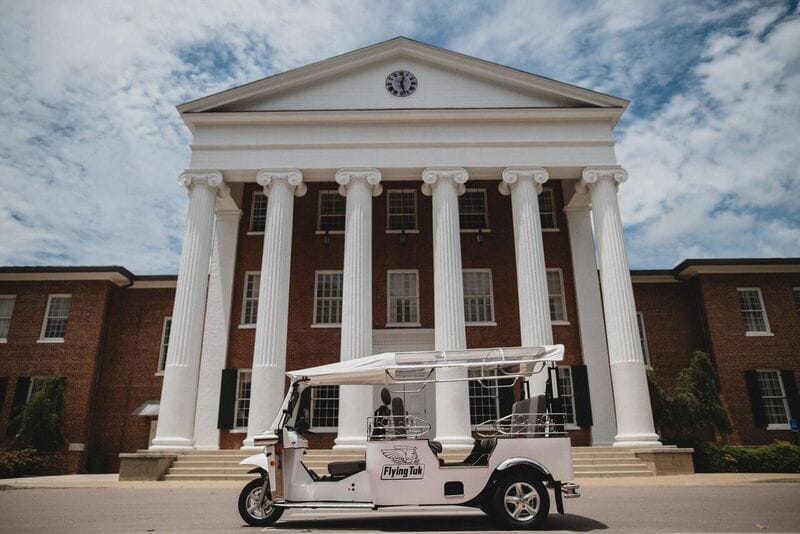
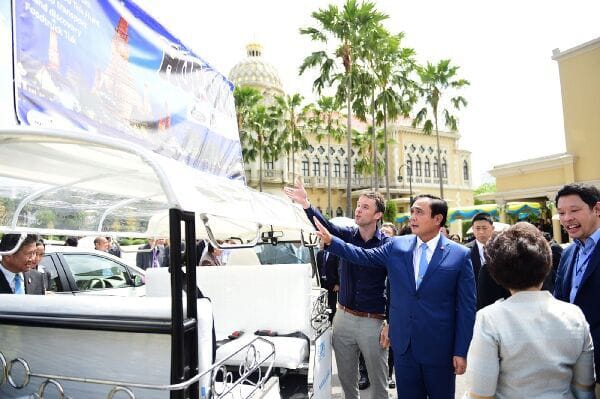
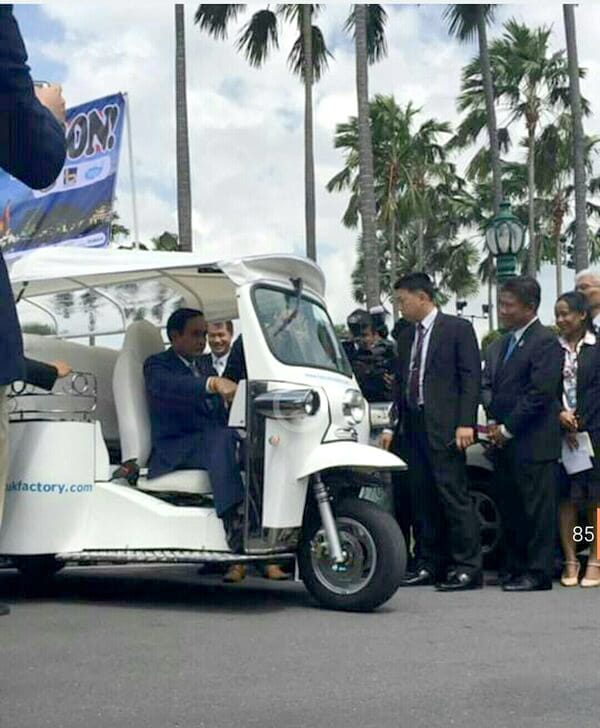
 RSS Feed
RSS Feed
















